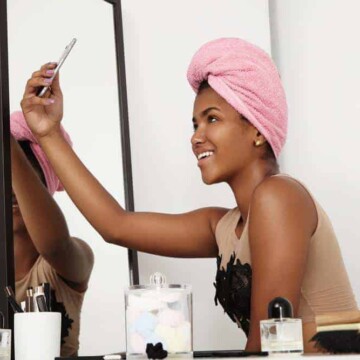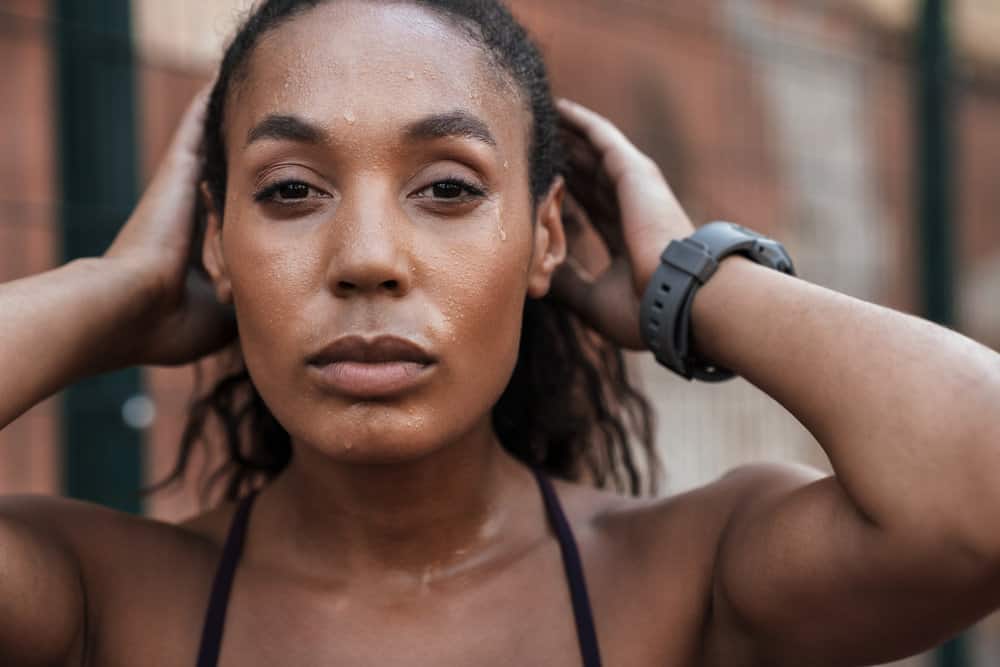
Sweat is a bothersome side effect of getting active, and there’s no stopping it. It can cause body odor and even show through your outfits.
But that’s not all; sweat can occasionally make your hair and scalp itchy. Why does your hair itch when you sweat?
The information we’ll cover in this article will help you figure out why your hair itches when you sweat. We’ll also give you tips on reducing and preventing scalp itchiness.
Table of Contents
Why Does My Hair Itch When I Sweat?
A sweaty, itchy scalp is both uncomfortable and distracting. And unfortunately, sweat-related itchiness can develop in a few different ways. Here are some of the most common.
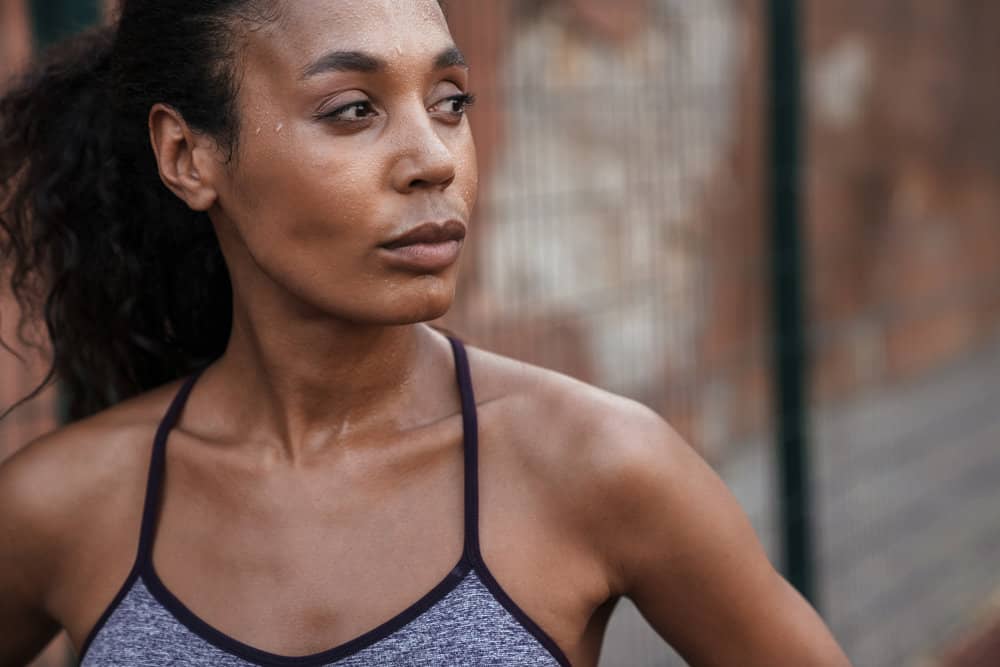
Sweat Makes Your Scalp Dirtier
Did you know that sweat can actually make your hair dirtier? And probably not in the way that you think. Sweat contains a mixture of water, fats, and salts.
While this isn’t bad on its own, sweat is sticky and will collect any dirt, dust, and debris that it comes into contact with from your environment.
As the sweat flows through your scalp, all of that dirt and oil is spread to the rest of your scalp and hair. And the dirtier your scalp is, the more likely you are to experience itchiness, flaking, and discomfort.
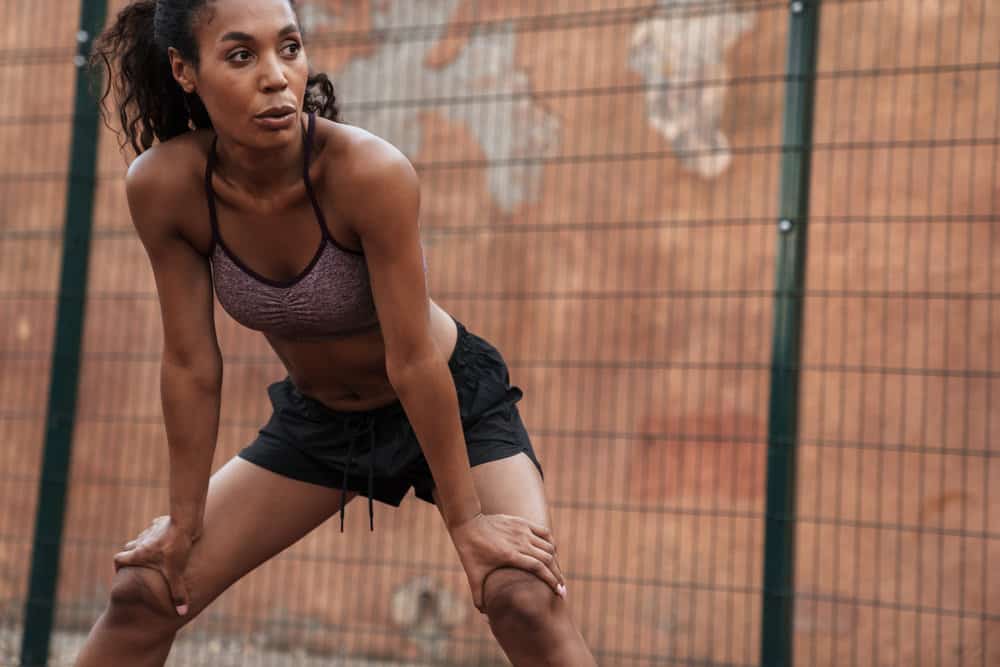
The Salt in Sweat Irritates Your Skin
The salt in sweat is extremely drying and can cause scalp irritation and itchiness. Additionally, when sweat sits on your skin for an extended period of time, it can create a blockage called eccrine miliaria.
When you develop eccrine miliaria, the sweat flows back into your ducts and plugs them up. As a result of the blockage, your sweat gets trapped under your skin’s outermost layers, resulting in an itchy rash.
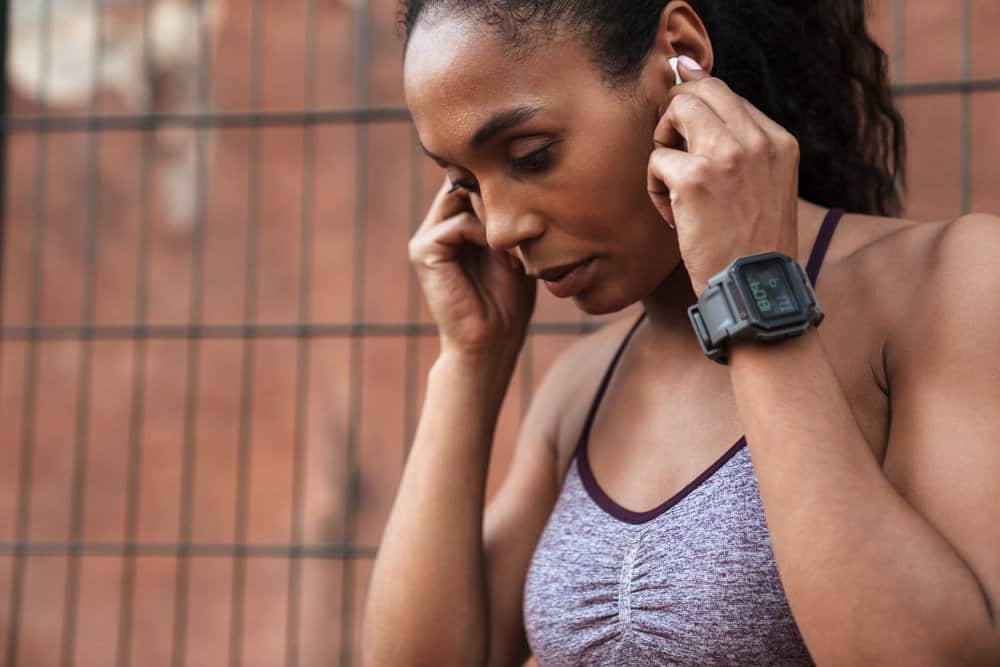
Sweat Can Cause an Overgrowth of Yeast and Bacteria
Another reason sweat contributes to itchiness is that a damp, oily scalp is the perfect breeding ground for a whole host of yeast and bacteria. The microbes feed on the oil and dead skin cells and start to multiply.
As the population grows, you’ll develop symptoms like itching, burning, and flaking. Luckily, these symptoms usually resolve once you wash away the yeast, salt, sebum, and bacteria.
Does Sweating Cause Hair Loss?
The bad news is that prolonged exposure to sweat can damage your hair and lead to hair loss. When you let sweat sit on your hair for too long, it can clog your follicles.
That can impede hair growth and cause inflammation.
As you learned earlier, sweat can also make your scalp itchy. And the more you scratch your hair, the more damage, and breakage you’ll experience.
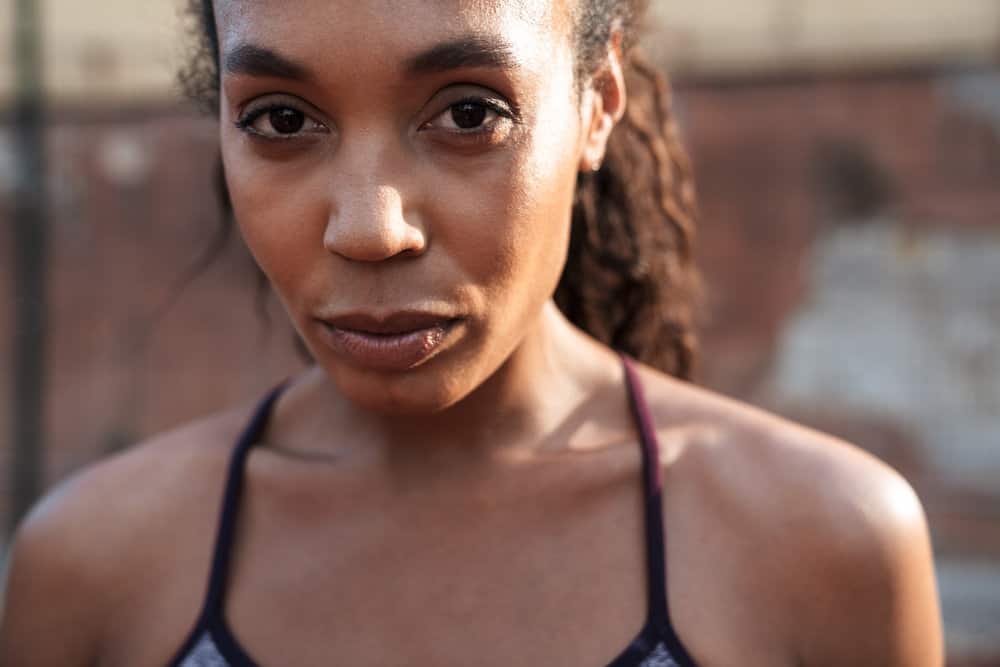
Another way sweat contributes to hair loss is through the accumulation of lactic acid. Lactic acid is a naturally occurring acid found in sweat.
When lactic acid sits on your hair and scalp for a long duration, it can cause inflammation. It can also change the texture of your hair and make it weaker and more breakage-prone.
Why Is Sweat Good for Your Hair?
Although sweat can adversely affect your hair and scalp, it's not all bad news. Research shows that sweating can actually improve hair growth!
After an intense workout, your scalp will sweat heavily.
As the sweat is pushed from your sweat glands, it will help unblock your hair follicles and flush out toxins. Additionally, the process of working up a sweat can improve your blood and oxygen circulation.
And the more well-fed your hair follicles are, the thicker and faster your hair growth will be. It's important to note that the benefits are attributed to the act of sweating rather than the sweat itself.

How to Stop an Itchy Scalp
Got an itchy scalp? Luckily, you don’t have to suffer through the discomfort. There are a variety of ways you can soothe an itchy scalp. Here are some of our favorites!
Wash Your Hair With an Anti-dandruff Shampoo
Anti-dandruff shampoos are one of the easiest and most convenient ways to relieve an itchy scalp. They are packed with soothing and yeast-killing ingredients.
They also leave behind potent antifungals, which can help prevent your symptoms from coming back in the future.
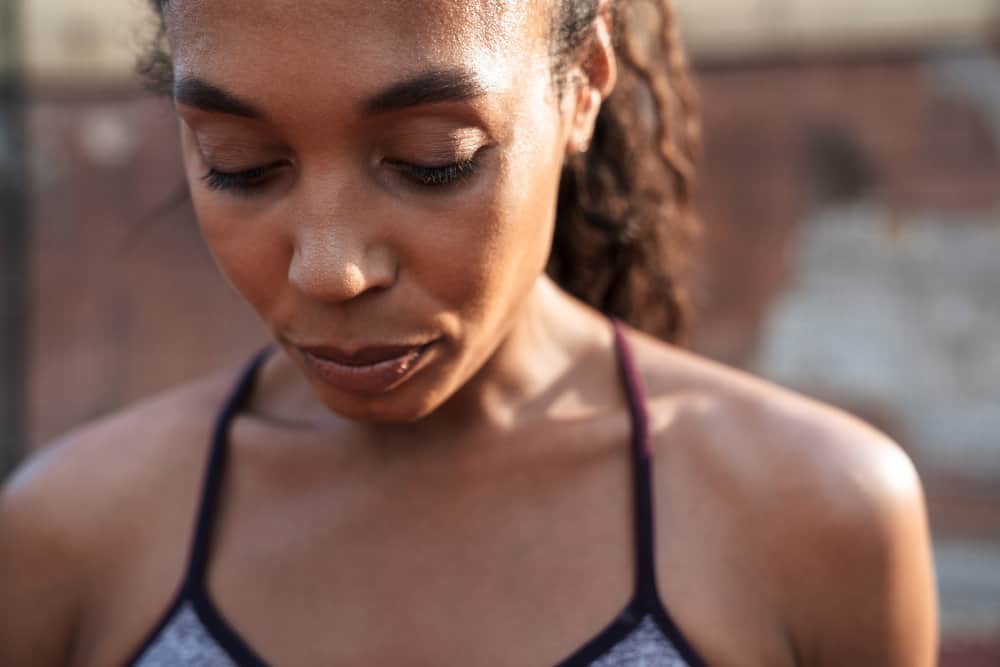
Blow Dry Your Hair
Don’t have enough time to wash your hair? Blasting your scalp with a blow dryer will help ease your symptoms and provide relief.
The air and heat from the dryer will remove the excess moisture and reduce the amount of microbial growth on your scalp.
Apply an Essential Oil to Your Scalp
Many essential oils have antimicrobial properties, which can help reduce yeast and bacterial growth. They’re also soothing and cooling, which can further cut down on the itchiness you experience.
There are a variety of different essential oils that can calm an inflamed scalp. Here are some of our favorite natural oils.
- Tea tree oil
- Lavender oil
- Peppermint oil
- Coconut oil

Visit a Medical Professional
Extreme and excessive itchiness can indicate an underlying health condition. If that’s the case, you’ll likely need medical intervention before your symptoms resolve.
There are a number of different medical conditions that can cause an itchy scalp. Some of the most common include:
- Psoriasis
- Eczema
- Seborrheic dermatitis
Try a Scalp Exfoliator
Even if you’re aware of how beneficial exfoliating your skin is, you might be surprised to find out that your scalp can also benefit from the process.
Physical and chemical exfoliants cut through the layer of dirt, oil, residual product, and dead skin cells that can build up on your scalp.
Exfoliants are so strong that they cut through stubborn residues that your regular shampoo leaves behind. And the cleaner your scalp is, the less likely you are to deal with itching and irritation.
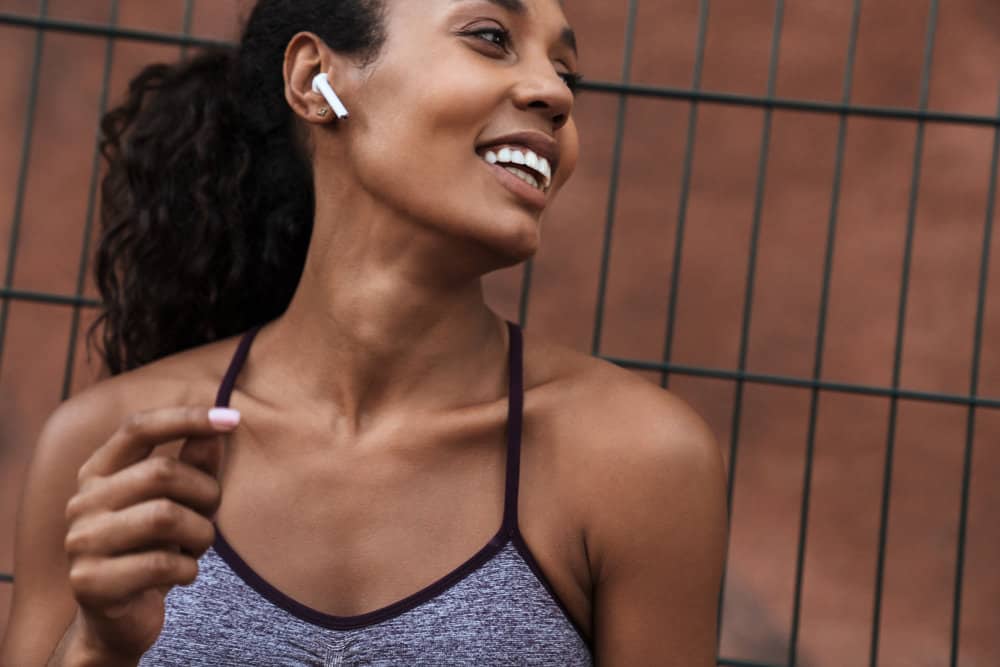
Work on Your Hair-Washing Routine
Not properly washing your hair can contribute to an itchy scalp and make it more challenging to get rid of. Make sure that you’re washing your scalp enough, but not so much that you’re destroying your scalp's natural barrier.
Take your time when you work the shampoo into your scalp, and try to follow the directions as they’re written on the package. Then, when it's time to rinse, remove as much shampoo residue as possible.
Cut Back on Junk Food
There’s no way around it: a healthy scalp starts from the inside out. Certain foods can trigger your body’s inflammation response and make the itchiness worse.
Eating a healthy, well-balanced diet keeps your scalp healthy and helps prevent future irritation. Cut down on fatty, sugary, and processed food. Instead, incorporate more fresh fruits, veggies, and water into your diet.
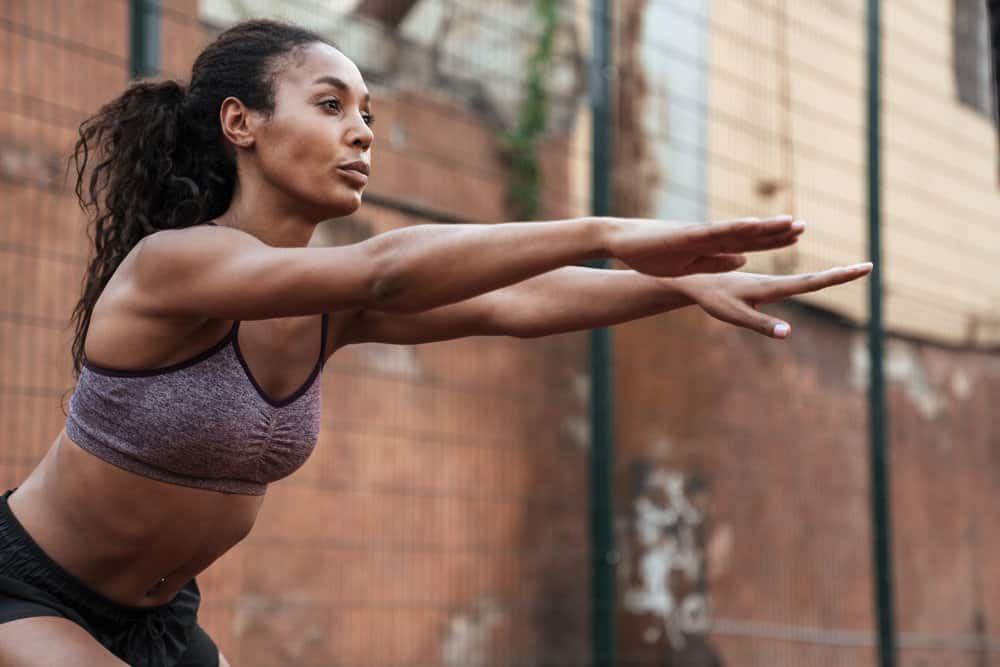
Should You Wash Your Hair After Sweating?
The faster you remove the sweat from your scalp, the less it’ll be able to affect your hair or skin. It’ll also immediately relieve your discomfort, odor, and itchiness.
Keep in mind that shampooing your hair more than a few times a week may harm your hair and scalp. And even gentle shampoos can strip away your hair’s natural, protective layer.
That can leave it dry, brittle, and significantly more damage-prone.
If you want to avoid shampoo, you can always rinse your hair with fresh water to flush out the sweat. Or, use a hydrating co-wash to cleanse your scalp without potentially irritating it.
An itchy scalp is one of the lesser-known side effects of sweating heavily. They are incredibly uncomfortable and potentially embarrassing and can even damage your hair and scalp.
But fortunately, there are a ton of different ways to soothe your symptoms and refresh your hair and scalp. And we hope that one of the methods we’ve covered today helps you do just that!




